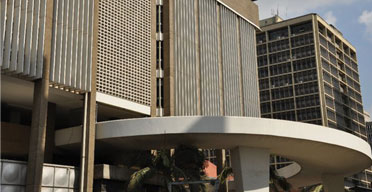NAIROBI, Kenya, Feb 1 – The current lending rates are set to remain steady at least for the next one month after the Central Bank of Kenya (CBK) retained its benchmark lending rate at 18 percent in its latest market review.
By holding the Central Bank Rate (CBR) constant, CBK’s top decision making organ pointed out that it wanted to ensure that inflationary pressures ease to levels that are consistent with the government’s inflation target that is currently pegged at nine percent.
“This will allow time for the policy measures in place to work out and deliver decisive results on inflation and inflation expectations,” CBK Governor Prof Njuguna Ndung’u said.
The Monetary Policy Committee (MPC) report titled ‘Restoring Price Stability’ came a day after the Kenya National Bureau of Statistics reported that January inflation had slid marginally by 6.2 basis points to18.31 percent.
The committee’s main objective in the last three months has been to tighten the policy stance in order to address the twin challenge of a volatile exchange rate and soaring inflation.
While the measures have worked effectively in terms of stabilising the shilling from an all time high of Sh107 to the dollar to the current Sh83, the inflation front has on the other hand seen a gradual decline.
This is mainly because balance of payments pressures and eurozone-related risks continue to pose a big threat to these efforts.
However, the CBK is convinced that a reversal in the acceleration trend is inevitable in coming months, given the projected decline in energy prices and the easing of demand pressures following the slowdown in private sector credit growth.
This will be welcome news to existing borrowers, many of whom although affected by the high rates have not defaulted on their obligations.
The CBK is also counting on the intendedSh51 billion in external borrowing to provide reprieve to the borrowers.
“The government’s planned external commercial financing as part of its domestic borrowing requirement in the fiscal year2011/12 is expected to dampen upward pressure on interest rates. In addition, the continued coordination of fiscal and monetary policies will sustain the growth potential,” Ndung’u added.
All these factors have led many pundits to forecast that inflation will recede to below 10 percent in the next few months.
Should this happen, Standard Chartered Bank Head of Regional Research for Africa Razia Khan argued that focus would then shift to ‘when, and not if’ the CBK will start cutting interest rates.
Food and oil prices as well as forex rate stability will all be key determinants of any eventual CBK easing, she added.
“Our view all along had been that this may not happen until June this year. However, given continued stability in the forex rate as well as the precedent of Uganda having commenced its easing more formally, risks of an earlier start to the easing cycle in Kenya are building,” Khan predicted.



































